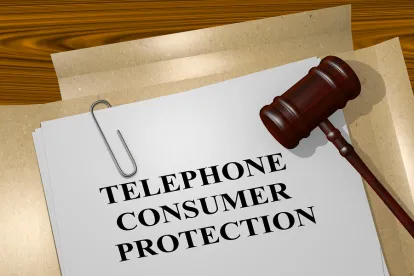On March 16, 2018, the United States Court of Appeals for the District of Columbia Circuit issued its long awaited decision in ACA International v. FCC, in which a group of petitioners across a spectrum of industries sought review of various aspects of the Federal Communications Commission’s (FCC’s) 2015 Omnibus Declaration Ruling and Order (2015 Order). The controversial 2015 Omnibus Order adopted further regulations to implement the Telephone Consumer Protection Act (TCPA) – which was enacted more than twenty-five years ago to address certain issues with automated telemarketing calls.
In reviewing the 2015 Order, the DC Circuit found, however that the FCC’s regulations were, in critical respects, arbitrary and capricious. Importantly, the DC Circuit held the FCC failed to articulate any clear and reasonable definition of an “automatic telephone dialing system” (a.k.a., an ATDS), which, generally speaking, is a device that can store thousands of telephone numbers and call them at random. The DC Circuit recognized that, under the FCC’s broad interpretation, an ATDS would include any smartphone. As the DC Circuit held, the FCC’s “expansive interpretation” threatened everyday Americans with massive TCPA violations for innocent misdials.
In addition, the court struck down the FCC’s definition of “called party,” including a “one-call safe harbor” for callers who called a number that had been reassigned from someone who had consented to receive the call to someone who had not. The court found the FCC’s “one-call” safe harbor entirely arbitrary given the agency’s failure to explain why liability was appropriate after one misdial, especially where the caller may not learn the number had been reassigned from an initial mistaken call.
In response to the court’s ruling, the FCC recently released a Notice of Proposed Rulemaking (NPRM) soliciting public comment on the provisions of the Omnibus Order struck down by the court and related topics. In particular, the FCC has requested comment on:
- Narrowed Definitions. The NPRM seeks comments on the various elements of the definition of an ATDS. The agency seeks comment on its proposal to narrow the definition of the “capacity” required of a device for it to fall within the definition of an ATDS to more specifically target “robocalls.” The FCC also proposes to further define the term “automatic” to clarify what it means for an automatic telephone dialing system to “dial thousands of numbers in a short period of time.” And the FCC seeks comment on whether an ATDS must function without human intervention and whether a device still comes within the definition of an ATDS if it has the capacity to operate as an ATDS but the caller does not use that functionality to place calls. With these proposals, the FCC appears focused on narrowing the definition of an ATDS to meet the court’s concerns about its previous “capacious” definition that would subject everyone using a smartphone to TCPA liability.
- Reasonable Reliance. The FCC also proposes to revisit its definition of “called party” under the TCPA. The FCC seeks guidance on whether the term refers to the person the caller expected to reach, the person the caller actually did reach, or some other group of persons. For guidance, the FCC noted it may look to other sections of the TCPA that limit “called party” to a telephone line’s current subscriber. The FCC further seeks guidance on how to justify and whether to eliminate or modify its one-call safe harbor struck down by the DC Circuit, as well as how it should understand the term “reasonable reliance.”
- Opt-Out Methods. The FCC also seeks comment on how a called party may revoke consent to receive regulated calls. While the court noted that “any reasonable means” would do, the FCC needs to identify clear, user-friendly methods for revoking consent and provide callers guidance on whether such methods must be provided to called parties.
- 2016 Federal Debt Collection Rules. Finally, the Commission seeks comment on issues raised by Great Lakes Higher Education Corporation’s petition for the FCC to reconsider parts of the 2016 Federal Debt Collection Rules, including whether the TCPA’s limits on calls to reassigned wireless numbers applies.
Any regulations that follow on the FCC’s proceeding will likely need to be narrower than those promulgated in the Omnibus Order in light of the DC Circuit’s decision striking down core requirements adopted in that Order. Chairman Pai, who as a Commissioner dissented from the Omnibus Order, indeed welcomed the DC Circuit’s ruling, explaining “the prior FCC’s disregard for the law and regulatory overreach” had placed “every American consumer with a smartphone at substantial risk of violating federal law.” Chairman Pai expressed the hope that new regulations would target only the “bad actors who bombard Americans with unlawful robocalls.” Exactly how the FCC chooses to limit its regulations to address those “bad actors” – rather than every citizen armed with a smartphone – will be the focus of the Commission’s new rulemaking. Comments on the FCC’s NPRM are due June 13, 2018 and reply comments are due June 28, 2018.





 />i
/>i

